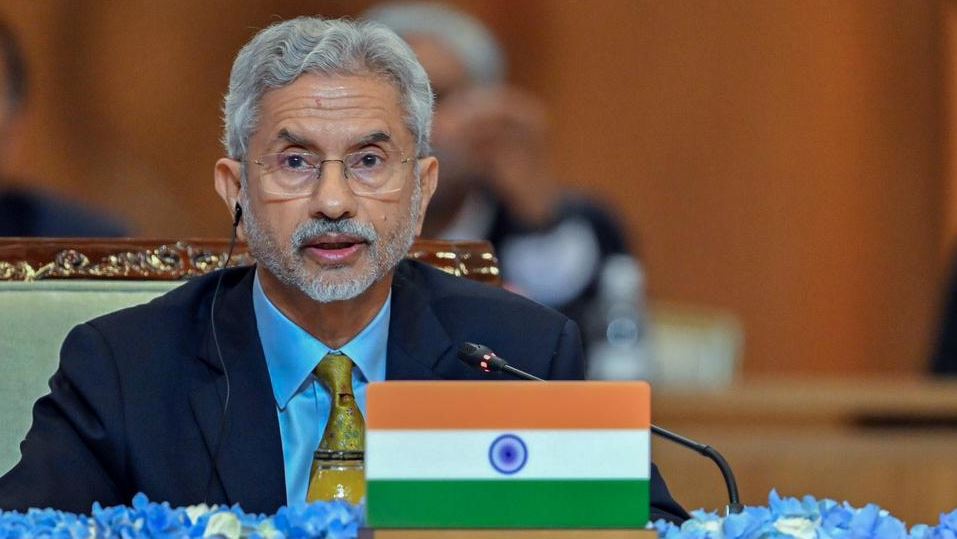Strategic Diplomatic Adjustment
India has recently undertaken a significant reduction in its diplomatic footprint in Bangladesh. Non-essential staff and their families from the Indian High Commission in Dhaka have been repatriated on a voluntary basis via commercial flights. Despite this scaled-back presence, the High Commission remains operational with its core diplomatic team continuing their duties in Dhaka.
External Affairs Minister S. Jaishankar underscored India’s expectation for the Bangladeshi government to ensure adequate security for Indian diplomatic missions. Jaishankar conveyed that India’s hope is for normalcy to be restored soon, allowing for the full resumption of diplomatic activities once the current unrest subsides.
Diplomatic and Political Context
The recent decision by India to scale back its diplomatic operations follows a surge in political instability in Bangladesh. The crisis erupted after Prime Minister Sheikh Hasina, who had maintained an authoritarian grip on power for 15 years, resigned amid widespread protests. Initially sparked by discontent over a job quota system, the protests evolved into a broader movement demanding Hasina’s removal, culminating in her fleeing to India.
India’s diplomatic retreat reflects the growing concerns over the safety and security of its staff amid the turmoil. The ongoing protests, which have intensified over the past weeks, have created an unpredictable environment for foreign missions operating in Bangladesh. The voluntary evacuation of non-essential personnel is a precautionary measure aimed at safeguarding the well-being of diplomatic staff and their families.
Regional Implications and Future Prospects
India’s strategic move to reduce its diplomatic presence also has broader implications for regional diplomacy and international relations. With the political landscape in Bangladesh in flux, the Indian government is closely monitoring the situation, aiming to protect its interests while navigating the evolving crisis.
The reduction in diplomatic staff is a temporary measure designed to ensure the safety of personnel until the situation stabilizes. India has emphasized the need for the Bangladeshi authorities to provide adequate protection for its diplomatic missions. This expectation is crucial for maintaining the functionality of bilateral relations and the operational effectiveness of diplomatic engagements.
The diplomatic reshuffle comes at a time when Bangladesh is grappling with significant political and social upheaval. The departure of Sheikh Hasina has left a power vacuum that will need to be addressed by the incoming administration. The resolution of the current crisis and the establishment of a stable government will be pivotal in restoring diplomatic normalcy and ensuring the safety of foreign missions.
Summary
India’s decision to reduce its diplomatic presence in Bangladesh underscores the seriousness of the ongoing crisis in the region. The voluntary evacuation of non-essential staff and families from the Indian High Commission reflects concerns over safety amidst escalating unrest. As Bangladesh navigates its political turmoil, the international community, including India, will be watching closely to assess the stability of the situation and the future of diplomatic relations.
Key Learning Points
| Point | Detail |
|---|---|
| Diplomatic Reduction | India has scaled back its diplomatic presence in Bangladesh, with non-essential staff and families returning. |
| Political Crisis | The reduction is a response to the political instability following Sheikh Hasina’s resignation amid mass protests. |
| Security Concerns | India expects Bangladesh to ensure the security of its diplomatic missions as a condition for resuming full diplomatic operations. |
Soumya Smruti Sahoo is a seasoned journalist with extensive experience in both international and Indian news writing. With a sharp analytical mind and a dedication to uncovering the truth, Soumya has built a reputation for delivering in-depth, well-researched articles that provide readers with a clear understanding of complex global and domestic issues. Her work reflects a deep commitment to journalistic integrity, making her a trusted source for accurate and insightful news coverage.



